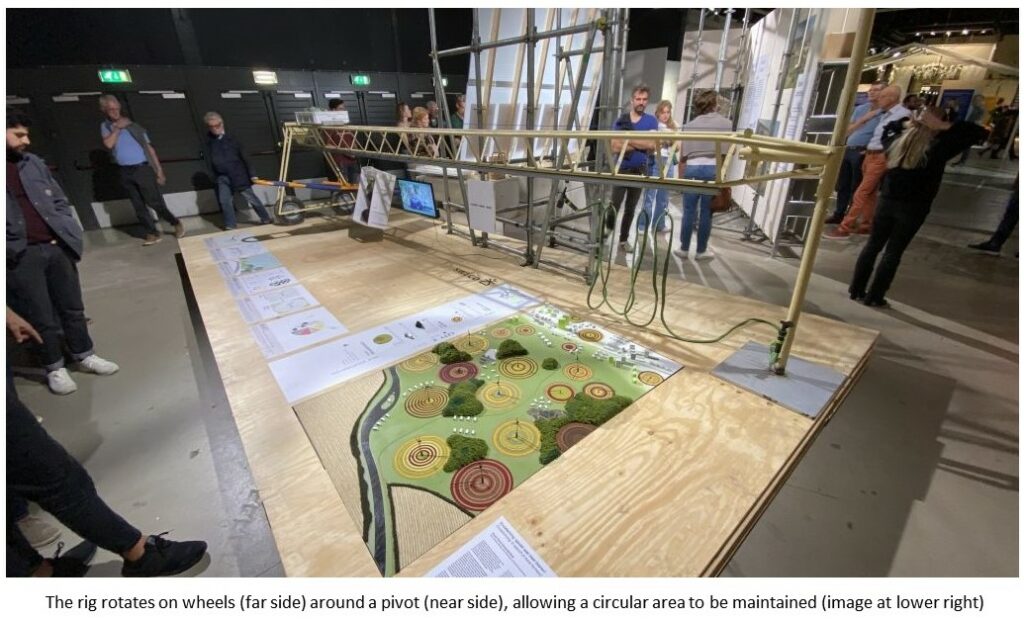Cheap Labor Farming vs Mechanical Technology
Cheap labor versus Innovation . . .
“Dutch innovators vs Dutch farmers,” The one-handed economist, David Zetland.
This past weekend, I visited the Dutch Design Week exposition in Eindhoven (home of Philips). There were hundreds thousands of interesting (and sometimes baffling) displays, demos and ideas scattered around town.
One that caught my eye was from a team trying to sell an “easy harvesting” devise that could be used on small-scale labor-intensive farms. Here’s a photo from their exhibit:
What struck me immediately is that no farmers would be willing to buy (or use) such a rig if they faced competition from farmers using cheap (often illegal and underpaid) labor in mechanized greenhouses with the benefit of scale, chemicals, etc., i.e., typical Dutch farmers.
Sure, there are some people in this country who are “willing to pay a fair price for a good product,” but those folks (the “20 percent” in my 20/80 formulation*) are too few compared to the 80 percent who care more about low prices than labor conditions, sustainability, etc.
Is this the end of the story? Not at all. The Dutch government (regardless of the bad ideas present in the EU’s common agricultural policy) could end implicit and direct subsidies to industrialized farmers as well as taxing them for their pollution (vervuiling) and other sharp practices.
Food prices wouldn’t actually rise by that much as a result (even for veggies, the share of wholesale cost in the final price to the consumer is surely less than half), and the Netherlands could get a little closer to practicing what they preach.
My one-handed conclusion is that no innovation will occur in industries where the incumbents are protected from innovation.

